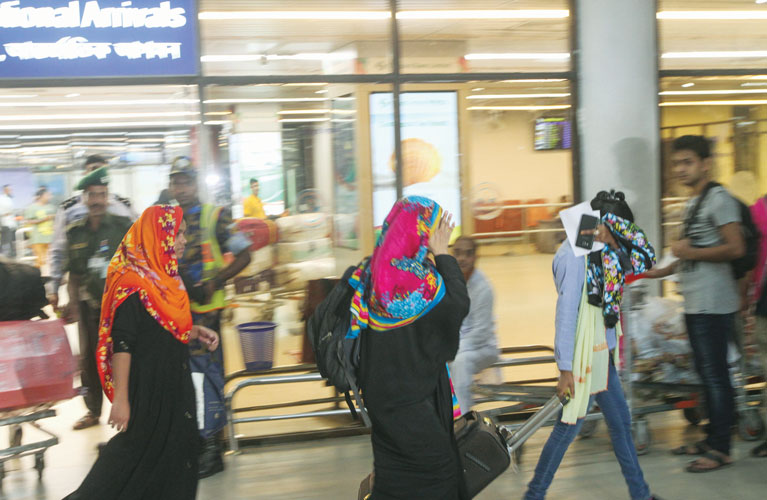An abusive relationship

The prevailing attitude amongst our administration regarding worker abuse seems to be tone deaf at best
Stories of Bangladeshi workers, especially women workers, suffering at the hands of their employers are nothing new. Many of those who are able to find their way back to Bangladesh often testify just how much pain and suffering (both physical and mental) our women are subjected to.
In interviews with 110 returnees — conducted by local migrant rights group Ovibashi Karmi Unnayan Program — 86% did not receive their full salaries, 61% were physically abused, 24% were deprived of food, and 14% were sexually abused.
To call this unacceptable would be nothing short of an understatement.
However, what is most unfortunate is that, even with all these facts and figures laid before them, the prevailing attitude amongst our administration regarding worker abuse seems to be tone deaf at best.
We do understand that there are checks and balances in place to prevent or at least report incidences of worker abuse, but simply having a system in place is seldom enough. It behooves the government and the ministries concerned to make sure that these systems work properly and are not plagued by the sort of corruption and bureaucracy that our administrative services are known for.
It is also understandable that Saudi Arabia is perhaps one of the most important countries that we export manpower to. But these incidents of abuse have been going on for way too long.
For the nation to simply throw money at us for their continued abuse of our own people is not a solution — and that is the message that we need to send them.
The remittance sent in by our hard-working men and women form the backbone of our economy, and we owe it to them to make sure that they live a life of safety and dignity. But if a host country simply sweeps these problems under the rug and prefers to simply pay for the lives they have destroyed, there is no reason for our country to continue such an abusive relationship.

